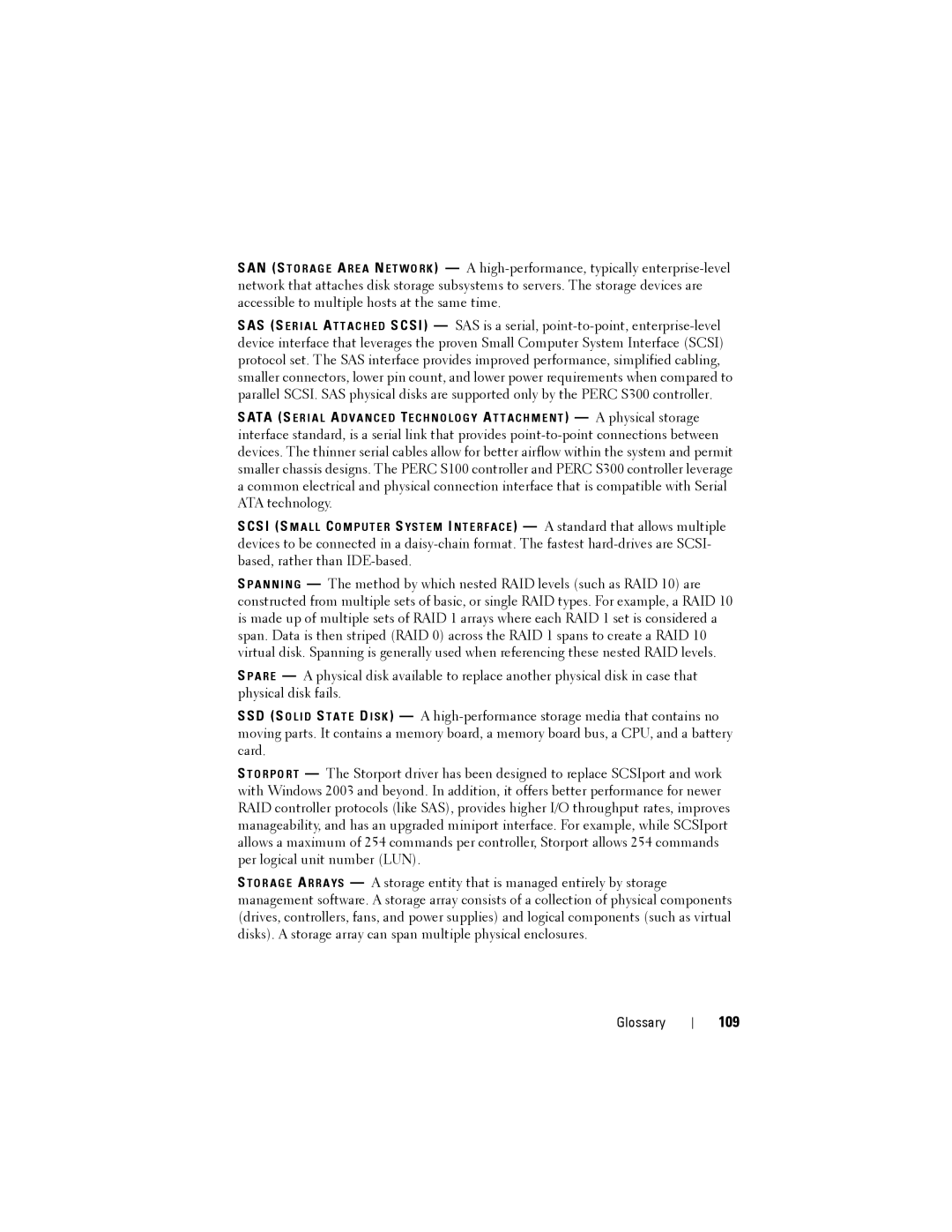SAN (S T O R A G E A R E A N E T W O R K ) — A
SAS (S E R I A L A T T A C H E D SCSI) — SAS is a serial,
SATA (S E R I A L A D V A N C E D TE C H N O L O G Y A T T A C H M E N T ) — A physical storage interface standard, is a serial link that provides
SCSI (S M A L L C O M P U T E R S YS T E M I N T E R F A C E ) — A standard that allows multiple devices to be connected in a
S P A N N I N G — The method by which nested RAID levels (such as RAID 10) are constructed from multiple sets of basic, or single RAID types. For example, a RAID 10 is made up of multiple sets of RAID 1 arrays where each RAID 1 set is considered a span. Data is then striped (RAID 0) across the RAID 1 spans to create a RAID 10 virtual disk. Spanning is generally used when referencing these nested RAID levels.
S P A R E — A physical disk available to replace another physical disk in case that physical disk fails.
SSD (S O L I D S T A T E D I S K ) — A
S T O R P O R T — The Storport driver has been designed to replace SCSIport and work with Windows 2003 and beyond. In addition, it offers better performance for newer RAID controller protocols (like SAS), provides higher I/O throughput rates, improves manageability, and has an upgraded miniport interface. For example, while SCSIport allows a maximum of 254 commands per controller, Storport allows 254 commands per logical unit number (LUN).
S T O R A G E A R R A YS — A storage entity that is managed entirely by storage management software. A storage array consists of a collection of physical components (drives, controllers, fans, and power supplies) and logical components (such as virtual disks). A storage array can span multiple physical enclosures.
Glossary
